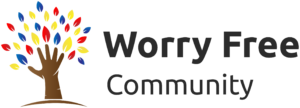EMPART Monthly Community Stakeholder Meeting Report Equipping Muslims with PCOR-Based, Action-Oriented Research Tools
Transparency in Healthcare
Monthly meeting was held virtually on February 21st, 2021
Report prepared by Luma Mahari, (PhD candidate, Organization Development & Value-Based Leadership)
Published in March 2021 WFC Newsletter.
Objective of the Monthly Stakeholder Meetings:
Our meeting focused on the fourth PCORI principle of transparency, honesty, and trust. Clarity between patients, stakeholders, and researchers is key to successful engagement and long-term relationship building. One key objective is to find transparency in the healthcare system for it to better serve our needs. Since the system increases in complexity from an individual level to the government, there comes a need for systems literacy and continuous accountability.
Dr. Aminah Al-Deen, was one of our guest speakers who discussed “Capacity building within ourselves” where she reviewed how to better synchronize our behaviors to have a more transparent healthcare system. She shed light on what it means to have transparency in the system. This includes clarity and accuracy of the explanation and fairness in the treatment. With a better understanding of patient-centered care, we can make more informed decisions of the best healthcare plans, hospitals, clinical practice, and alternative treatments. Key components to consider when choosing health insurance include co-payments, coverage, deductibles, annual enrollments, prescriptions, medical devices, and additional services (transportation, nursing, physical therapy, etc.). When assessing the effectiveness of healthcare providers, certain questions that should be considered are the types of patients they serve, the type of insurance, the type of services, and how they are billed for their services. When preparing for the provider’s appointment, one should consider the courtesy of the staff, cleanliness of the facility, the waiting room, professionalism of the provider, and how well the procedures are explained.
The advisory committee is developing three separate groups of sub matter experts for data analysis, systems development, and legal. The aim is through specialization we build capacity at different levels and provide an expert lens to team members to improve their systems literacy. Dr. Kamal Eldeirawi works on the CIOGC COVID-19 Task Force work on providing the needed resources for sustainable socio-economic conditions. Our mission is by working with the CIOGC Task – Force on Faith-Based Initiatives and advocating for certain healthcare policies in Congress, we can address the customized needs of our communities, mosques, and members.
In the context of transparency, Dr. Eldeirawi reminded us of the need to be humble and admit to not having the solutions when we are unsure of a situation. He also discussed the need to use the proper language that is best understood by the audience that we are addressing. The risk of possible breaching of confidentiality should be discussed with the patients during any research or project implementation. Another key element of transparency during research is to share the type of research you will be completing with the gatekeeper of any institution. Their needs may be different from the researcher’s interests, and sometimes including a second collaborator may be beneficial in completing the research project at the organization. One should also consider what they are contributing to the organization rather than consider individuals data points. With whom the aggregated data will be shared should also be clearly discussed with the partner organization to build trust.
Hira Mirza plays an active role in linking grassroot communities to government structures. She shared available resources that will help interested team members stay more engaged with their local communities and faith-based communities. Change requires consistency and numbers for the voices to be heard and create the needed impact. She also emphasized the need to build relationships with these government agencies. The current administration is greatly interested in broadening their reach to underserved and lower income communities. Hira Mirza highlighted our responsibility to address the government with what the Muslim community’s needs are, because in most instances the government does not know what the current state of the communities are and how to best support them.
Mr. Imran Khan discussed how to develop and integrate information systems within the healthcare system to create transparency and capacity building in organizations. He designs information systems with roads, canals, and bridges to build capacity across the healthcare environment. He has worked on migrations, re-platforms, and the engineering of big data into the public cloud. Mr. Khan finds the need to revolutionize our current technology system where it incorporates a digital ID for each patient, so their information can be easily accessed when they change providers. Another important initiative should be in enhancing the EMR technology systems in different organizations for ease of collaboration and the sharing of information amongst providers from different health care systems.
Through these monthly meetings the EMPART project team aims to build capacity by fostering a culture of transparency to facilitate partnerships across the entire continuum of healthcare discipline from grassroots involvement in patient centered research to implementation of systems that worked for patients and their caregivers.
Community-Stakeholder-4




